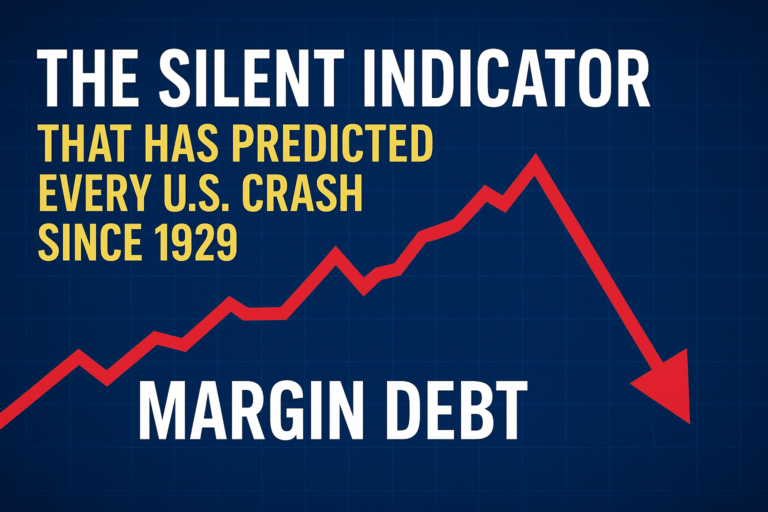
As quantum computing gains momentum in 2025, investors are eyeing opportunities to capitalize on this transformative technology. Companies like IonQ, Rigetti Computing, and other emerging players are generating buzz on platforms like X, with analysts touting their potential amid rapid progress. However, these smaller firms come with significant risks—unproven technologies, volatile stock prices, and reliance on uncertain funding. In contrast, tech giants like Nvidia, Microsoft, and Alphabet offer a safer bet, integrating quantum advancements into their diversified portfolios. With Nvidia’s market cap nearing $3.5 trillion and Microsoft’s Azure Quantum ecosystem expanding, large tech firms provide stability and long-term growth potential. This blog explores why investing in these established players might outweigh the high-stakes gamble of smaller quantum startups, helping you make informed decisions in the quantum race.
The Risk-Reward Divide: Small Startups vs. Big Tech
Investing in quantum startups like IonQ or Rigetti is a high-risk, high-reward proposition. These companies, focused on trapped-ion or superconducting qubit technologies, promise breakthroughs but face hurdles. IonQ, despite a 102% revenue jump to $12.4 million in Q3 2024 and a $63.5 million Air Force contract, reported a $52.5 million net loss, reflecting its early-stage status. Rigetti, with its 84-qubit Ankaa-3 system boasting 99.5% fidelity, saw a $14.8 million loss and a 70% stock drop earlier this year, highlighting volatility. Their high price-to-sales ratios—IonQ at 212.6, Rigetti at 60—signal speculative valuations, and a single technical setback could erase gains. With cash reserves ($382.8 million for IonQ, $92.6 million for Rigetti), they depend on future funding, a risky bet in a sector where profitability might not arrive until 2030.
Investment and Commercial Progress of Large Technology Companies in Quantum Computing
Nvidia
Nvidia, with a market cap nearing $3.5 trillion, is channeling significant resources into quantum computing as part of its AI and data center dominance. While exact investment figures are not publicly detailed, its $145 billion projected data center revenue for 2025 includes quantum-related R&D, supported by its robust $10 billion cash reserve. The company’s CUDA-Q platform enables quantum-classical hybrid simulations, enhancing its GPU ecosystem. Commercially, Nvidia hosted its first Quantum Computing Day at the 2025 GPU Technology Conference, signaling intent to support quantum workloads. Its Blackwell GPU architecture also aids quantum simulations, though practical quantum systems remain experimental, with CEO Jensen Huang suggesting usability is 15-30 years away.
Microsoft
Microsoft is investing heavily through its Azure Quantum initiative, with a $13.5 billion free cash flow funding quantum efforts. A notable $1 billion deal with Atom Computing targets a 1,000-qubit quantum supercomputer by 2025, aiming to accelerate commercial deployment. The Quantum Ready Program educates businesses on quantum adoption, reflecting a long-term strategy. Commercially, Azure Quantum collaborates with IonQ and Quantinuum, offering cloud-based quantum access, though revenue impact is minimal as the focus remains on research and hybrid solutions.
Alphabet (Google)
Alphabet allocates substantial funds to its Quantum AI division, though specific investment amounts are undisclosed. Its free cash flows from digital advertising and Google Cloud support quantum R&D. The Willow chip, demonstrated in 2024, completed a computation in minutes that would take classical systems 10 septillion years, showcasing error reduction as usage increases. This positions Google for future commercial viability, though current applications are limited to research, with no direct revenue reported.
IBM
IBM, a pioneer in quantum, invests aggressively, with plans for a 4,000+ qubit quantum supercomputer in 2025 and a 200-logical-qubit system by 2029. Its $1.71 billion in quantum startup funding support in 2023 (down 27% from 2022) reflects a shift toward scaling, backed by its $20 billion R&D budget. Commercially, IBM’s Quantum System Two, a modular platform supporting up to 16,632 qubits, is being delivered to clients, marking a step toward fault-tolerant systems. Cloud access via IBM Quantum Experience drives early enterprise adoption, though profitability is distant.
Amazon
Amazon’s AWS division invests through the $1 billion Quantum Embark Program and the launch of the Ocelot chip in 2025, designed for 90% error reduction. Its Amazon Braket platform provides third-party quantum access, fostering commercial experimentation. While specific investment figures are unclear, AWS’s $35 billion annual R&D budget supports these efforts. Commercial progress includes partnerships with D-Wave and IonQ, though quantum remains a small segment of its business.
These investments, totaling billions globally (with public funding exceeding $42 billion), signal a race toward quantum advantage, yet progress is uneven. Large tech firms benefit from diversified revenue, cushioning quantum’s high costs and long timelines—unlike startups facing funding gaps. However, claims of near-term commercial readiness (e.g., IBM’s 2025 targets) may overstate capabilities, as most systems operate at Technology Readiness Levels 4-5, tested in labs but not fully deployed.
Why Big Tech Wins for Investors
The quantum market, projected to reach $170 billion by 2040, favors large tech due to their resources and adaptability. Startups’ reliance on niche breakthroughs leaves them vulnerable to supply chain issues or talent shortages, exacerbated by global competition—China’s $15 billion state investment outpaces U.S. private efforts. Big tech’s diversified portfolios cushion against such risks, with Nvidia’s AI synergy, Microsoft’s cloud dominance, and Alphabet’s research edge. X sentiment leans toward IonQ’s momentum, but analysts favor Nvidia ($200 target, 38% upside) and Microsoft ($415 target, 10% upside) for reliability. Startups like IonQ ($43 target, 11% upside) or Rigetti ($15 target, 24% upside) could spike, but their instability contrasts with big tech’s consistent growth.



